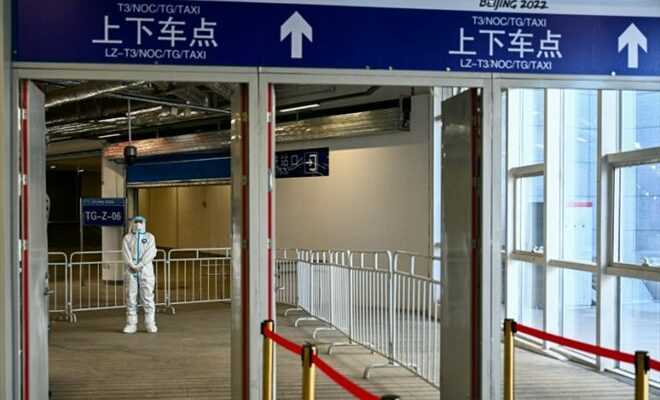Photo provided on November 16, 2021 by Pfizer showing the production of its Covid pill (Paxlovid), at a factory in Freiburg, Germany (Pfizer/AFP/Archives/Handout)
Pfizer’s pill to treat Covid will arrive in China: the national medicine agency authorized it on Saturday “conditionally”, in this country where foreign vaccines remain awaiting a green light.
This antiviral treatment, to be administered orally, is marketed under the name Paxlovid. It was authorized at the end of December in the United States and in around forty countries since, including in the European Union.
Studies have indicated that it significantly reduces hospitalizations and deaths in patients at risk of developing severe disease and should remain effective against the Omicron variant.
Antivirals work by decreasing the ability of a virus to replicate, thereby curbing disease.
China’s National Medical Products Administration has “conditionally approved” the drug, it said on Saturday. Like other countries, the pill will be reserved for patients at risk of developing a serious form of Covid.

A load of Pfizer Covid pills (Paxlovid) comes out of a cargo plane at Incheon Airport, near Seoul, on January 13, 2022 (POOL/AFP/Archives/JUNG YEON-JE)
The American pharmaceutical giant Pfizer will also have to continue studies on these tablets and submit the results to the Chinese regulator, she said in a press release published on its website.
This authorization comes at a time when China has been facing, for several weeks, a few small outbreaks of infection. Certainly very limited, they mobilize the health authorities because several cases of the Omicron variant have been detected.
– Winter Olympics –
China has been pursuing a zero Covid strategy since the start of the epidemic, which consists of doing everything to limit the occurrence of new cases, generally only a few dozen per day.
The Ministry of Health, for example, reported on Saturday only 40 new local patients throughout the country.
If these figures are derisory compared to those recorded in other parts of the world, they push the government to redouble its vigilance at a time when the city of Beijing is organizing the Winter Olympics until February 20.

A man stands at the exit of the sanitary “bubble” created for participants in the Beijing Winter Olympics, at Taizicheng station, in Zhangjiakou, on January 29, 2022 (AFP/Archives/Jewel SAMAD)
All participants are confined in a sealed sanitary bubble which prevents any contact with the rest of the population.
However, China has not authorized any foreign Covid vaccines so far.
The only vaccines available in the country are those from local manufacturers. Those of the public Sinopharm and private Sinovac laboratories, which use the classic inactivated virus technique, are by far the most used.
A total of 3.03 billion doses have already been administered in the country, according to the Chinese Ministry of Health, which at the end of January reported a complete vaccination rate (two doses) of more than 90%.
– Glass of water –
But doubts remain as to the effectiveness of these vaccines in the face of new variants. Sinovac has indicated that it wants to develop a dose specific to Omicron.
The European Medicines Agency (EMA) had already approved Pfizer’s Paxlovid at the end of January, the first oral antiviral treatment against the disease authorized in the European Union (EU).
This type of tablets could potentially mark a step towards the end of the pandemic because they are easy to administer: they can be taken at home with a glass of water.
Paxlovid is a combination of a new molecule, PF-07321332, and ritonavir, an HIV antiviral, which are taken as separate tablets.
Pfizer says it has already sold $72 million in 2021 and hopes to produce 120 million doses over the whole of 2022.
© 2022 AFP
Did you like this article ? Share it with your friends with the buttons below.




